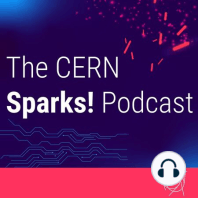2 min listen

S2 Ep4: S2 #4 Healthtech & Ethics: Getting it Right
S2 Ep4: S2 #4 Healthtech & Ethics: Getting it Right
ratings:
Length:
30 minutes
Released:
Oct 26, 2022
Format:
Podcast episode
Description
“We are so taken in by technology that we forget that technology is a tool that should be used with an outcome in mind.” - Soumya Swaminathan
In this episode, host Bruno Giussani and his guests wade through the quagmire of healthtech ethics and fairness, exploring topics such as how the notions of right and wrong are changed by technology, data ownership and privacy, mind-manipulation technologies and the marvels of machine-learning systems which often are black boxes that not even the specialists understand. In conversation with Bruno are Soumya Swaminathan, chief scientist of the WHO; George Church, the founding father of genomics; Pushmeet Kohli from DeepMind; technoethicist and entrepreneur Juan Enriquez; neuroscientist Olaf Blanke of the Swiss Federal Institute of Technology; and Nobel laureate Jennifer Doudna.
Guests: Soumya Swaminathan, George Church, Pushmeet Kohli, Juan Enriquez, Olaf Blanke, Jennifer Doudna
Host: Bruno Giussani
Production
CERN, Geneva: Claudia Marcelloni, Lila Mabiala, Sofia Hurst
Whistledown Productions, London: Will Yates and Sandra Kanthal
Copyright: CERN, 2022
In this episode, host Bruno Giussani and his guests wade through the quagmire of healthtech ethics and fairness, exploring topics such as how the notions of right and wrong are changed by technology, data ownership and privacy, mind-manipulation technologies and the marvels of machine-learning systems which often are black boxes that not even the specialists understand. In conversation with Bruno are Soumya Swaminathan, chief scientist of the WHO; George Church, the founding father of genomics; Pushmeet Kohli from DeepMind; technoethicist and entrepreneur Juan Enriquez; neuroscientist Olaf Blanke of the Swiss Federal Institute of Technology; and Nobel laureate Jennifer Doudna.
Guests: Soumya Swaminathan, George Church, Pushmeet Kohli, Juan Enriquez, Olaf Blanke, Jennifer Doudna
Host: Bruno Giussani
Production
CERN, Geneva: Claudia Marcelloni, Lila Mabiala, Sofia Hurst
Whistledown Productions, London: Will Yates and Sandra Kanthal
Copyright: CERN, 2022
Released:
Oct 26, 2022
Format:
Podcast episode
Titles in the series (14)
Trailer - The CERN Spark's Podcast - Future Intelligence by The CERN Sparks! Podcast